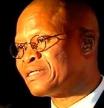'I was never afraid' - Mogoeng on handing down Nkandla judgment
Durban – Chief Justice Mogoeng Mogoeng said he was never afraid of handing down a ruling against President Jacob Zuma because when he took his oath of office he understood very well what it meant to carry out his Constitutional mandate without fear, favour or prejudice.
“I was never afraid of anything and of course I knew that I was not seeking to do anything that I was not entitled to do, or pursuing a political agenda in what I was doing.
“I was simply doing what President Jacob Zuma, on behalf of the nation, appointed me to do in terms of the Constitution. I am not afraid of anything,” he said.
Mogoeng was addressing the media after delivering the keynote address at the 14th Victoria & Griffiths Mxenge Memorial Lecture at the University of KwaZulu-Natal's Howard College on Thursday evening.
Nkandla ruling
He answered questions about his ruling on the Nkandla matter, in which he ruled that President Jacob Zuma had flouted the Constitution when he ignored Public Protector Thuli Madondela's remedial action on the non-security upgrades done at his private home.
Mogoeng said: “I have lived in South Africa at a time in which it was very dangerous. I was a student activist and most of my weekends were spent mobilising and conscientising people about the struggle and I was almost killed.
“I have gone through dangerous situations and when I took my oath of office I understood very well what it meant to carry out my Constitutional mandate without fear, favour or prejudice.”
He said while delivering his ruling it would have been highly inappropriate to seek to criticise any party involved in the matter or clarify the judgment that he had written.
“When the judge has written the judgment, his or her responsibility is to leave it to the public to digest and allow lawyers, professors and members of the public to interpret it for themselves.
“A judge should never look like he or she is campaigning to have the judgment understood in a particular way, a judge should never come across as though they have a hidden agenda against any member of society.”
He said his challenge to dig deep and reflect on whether people had betrayed the gains made by the Mxenge family was a challenge to every South African.
“I would rather die than participate in any corrupt agenda... I know that if I cannot live according to the irrevocable commitment to the people of South Africa through the oath of office, then I am better off dead than to live with the guilty conscience of having betrayed the Constitution.”
Legacy
On whether he viewed his ruling against the president as his legacy, Mogoeng said when he does his work he never thinks about his legacy.
“There is a trap in this obsession with legacy because it all becomes about your name and being remembered and you bend over backwards to accommodate what could make you look like an important person.”
He said when Griffiths and Victoria Mxenge, Nelson Mandela and Walter Sisulu made sacrifices and risked their lives they did not seek to leave a legacy.
“They were not looking to make a name for themselves, their priority was to contribute to the liberation of South Africa. When you commit you participate in activities that could result in you dying before your time, you don’t think about a legacy.”
He said people should do away with the obsession of leaving a legacy.
“The focus should always be on doing what you can to make a difference and if it grows, then it grows, but your joy should not lie in being remembered. Your fulfilment should lie in being able to impact the lives of ordinary people positively. Legacy does not feature anywhere in what I do.”
He said South Africans should always remember that those who died did not focus on themselves, they instead cared about their neighbours.
“Let us focus on the bigger vision and that is the Constitutional vision, I am not against being wealthy, it is a good thing as long as it is done legitimately. As you get wealthy don’t forget that the emancipation of all South Africans from landlessness and poverty and lack of education, sickness and disease is yet to be attained.”
He said it was everyone’s responsibility, black and white, to make sure that South Africa becomes what it has the potential to become.
This article first appeared on News24 – see here.
![]()

